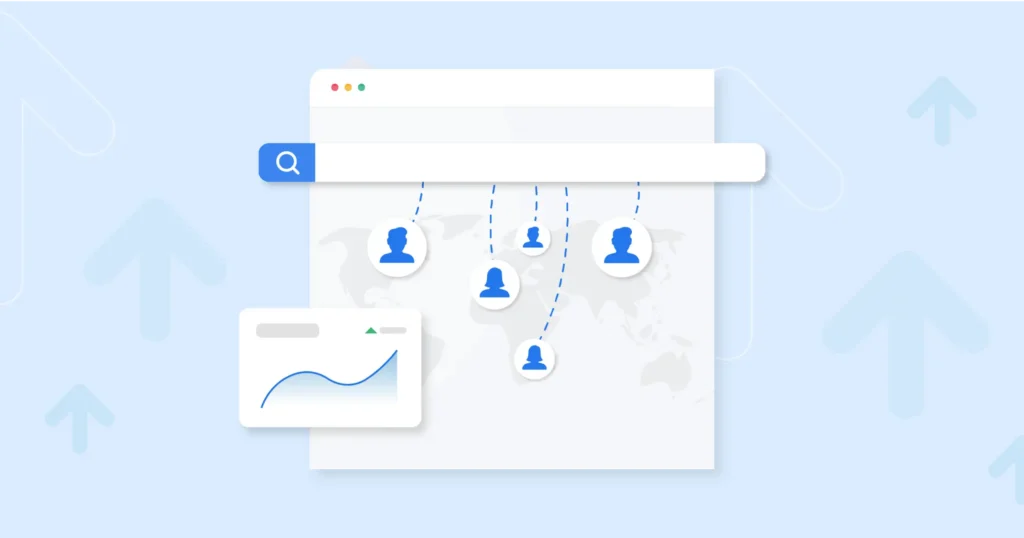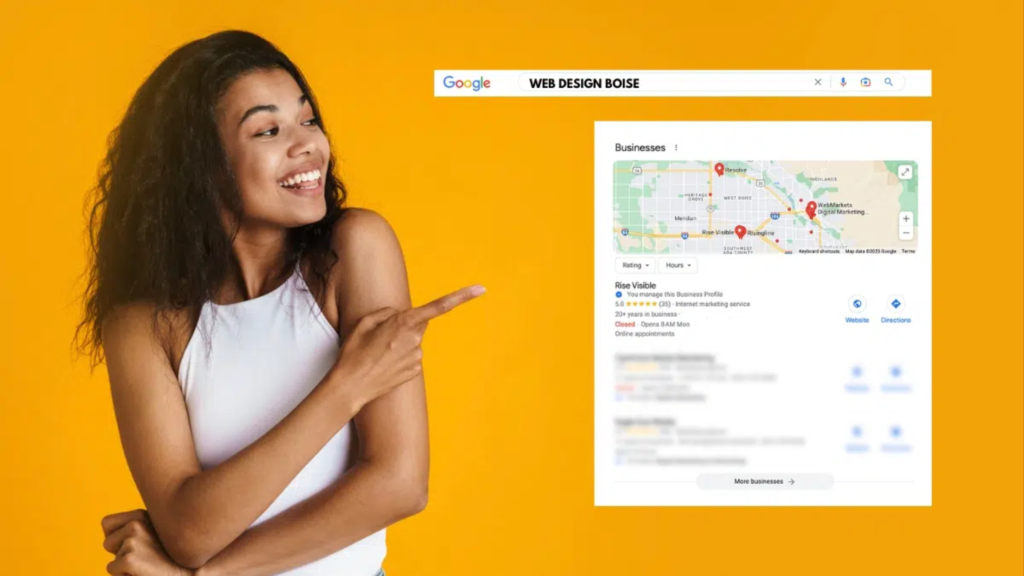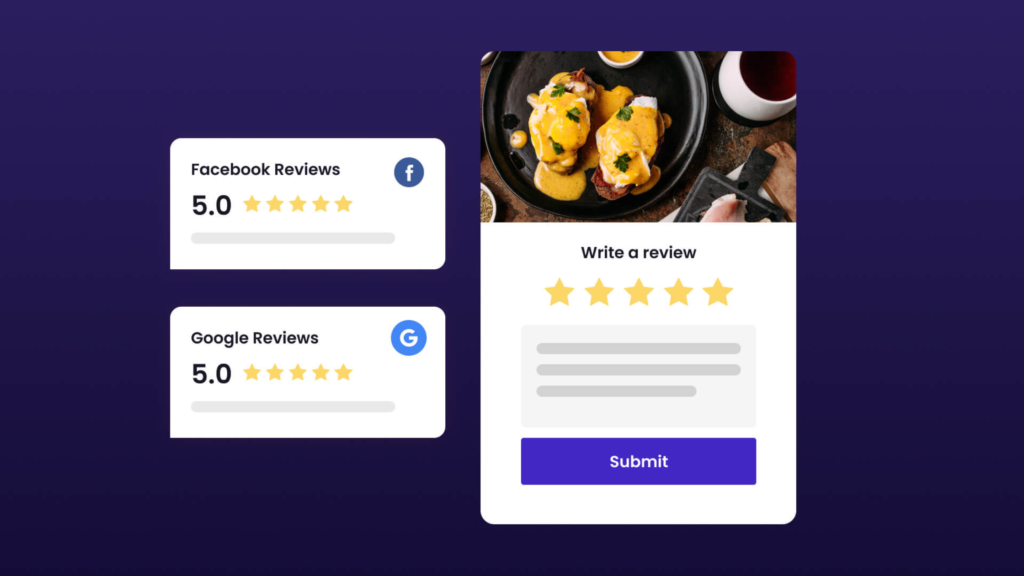Curious about mastering SEO for your multi-location business? Look no further! This post dives deep into the best practices and strategies to help you succeed.
Unlock a wealth of local customers ready to buy! Did you know? A staggering 46% of Google searches are local.
That’s almost half! Without local SEO for your multiple locations, you’re missing out on massive traffic and sales.
But there’s good news! With a few simple website tweaks, you can effortlessly attract targeted local traffic.
Imagine your store being the first thing potential buyers see! Whether you’re helping a client or optimising your own business, this guide reveals the secrets to dominating local search for multi-location businesses.
Ready to unleash your local SEO potential? Let’s dive in!
What is Multiple-Location SEO?
If you operate across multiple locations or service diverse areas, optimising your website for local search can significantly boost your online visibility and user experience. This strategy is particularly relevant if:
- You have multiple physical locations (e.g., stores, offices)
- You cater to a broad geographic area without physical locations
- You operate a directory of local businesses
Whether you manage two or two thousand locations, providing clear and consistent information to Google and other search engines is crucial.
This enables them to differentiate your locations and showcase the relevant one to users searching for your business.
1. Build Out Pages For Each Location
A common pitfall we encounter is the lack of dedicated location pages. Websites often attempt to rank their homepage for multiple locations or cram all locations onto one page.
This approach is suboptimal because each website page should be focused on a single theme. Building dedicated location pages significantly increases your ranking potential!
You might be thinking, “Isn’t this unnecessary? I’ll end up with lots of pages saying almost the same thing!”
The resounding answer is YES. Location-specific pages are crucial. Perform a Google search for your target keyword, and you’re virtually guaranteed to see location-specific pages ranking high.
There are two ways to do location pages:
- Do a location page with only the location, not the keywords, in the title tag and H1, that mentions your services (keywords), with internal links going from those services with keywords in anchor text to the service pages themselves. In this case the service pages should not usually mention locations.
- Do location + service (keyword) pages. In your case Boise + Pest Control, Boise + lawn service, and then link to service pages in keyword anchor text.
With both methods, either the location page or the service page may rank, both are fine.
You’ve kind of done both in this case, however. The risk is pretty heavy keyword cannibalization for both the locations and the service keywords.
Creating a logical URL structure
A clear and logical site structure, reflected in your URLs, is crucial for both user experience and search engine optimization.
By implementing a consistent system, you can enhance navigation, website organisation, and ultimately, your chances of ranking higher in search results.
Consider this example for a business with multiple locations across various states:
• yourbiz.com/locations/: Lists all locations.
• yourbiz.com/locations/florida/: Lists all locations within Florida.
• yourbiz.com/locations/florida/tampa/: Shows all locations in Tampa.
• yourbiz.com/locations/florida/tampa/location-name1/: Directs users to store #1.
• yourbiz.com/locations/florida/tampa/location-name2/: Leads users to store #2 within the same city.
For added clarity and SEO benefits, incorporate geographic information when relevant.
If store #1 resides in Grand Plaza Mall or at the intersection of 5th St. and Elm St., consider URLs like:
• yourbiz.com/locations/florida/tampa/Grand-Plaza-Mall
• yourbiz.com/locations/florida/tampa/5th-St-Elm-St
Alternatively, highlight the services you offer:
• yourbiz.com/locations/state/city/widget-repair
Regardless of your chosen structure, ensure consistency and organisation.
2. Optimise Each Location Page For SEO
Once you’ve built your pages, optimising them for Google’s understanding is crucial. The first step involves integrating your target keywords into both the title tag and meta description.
These snippets of code, present on every page, act as suggestions for Google on how to display your content in search results.
3. Optimise the Content for Each Location
Once you’ve created dedicated pages for your locations and crafted compelling title tags and descriptions, it’s time to enrich them with localised content that truly engages users!
Many businesses fall short by leaving their location pages barren. Don’t make that mistake! Populate them with everything a potential customer might seek.
1. Detailed Service Descriptions:
Clearly describe the services offered at each location. If you have a diverse service portfolio, consider creating dedicated pages for each one, offering deeper insights and highlighting local nuances.
2. Address FAQs Proactively:
Anticipate common questions about your services and provide comprehensive answers directly on the page. This demonstrates expertise and transparency, building trust with potential customers.
3. Showcase Your Work with Local Flavour:
Integrate photos showcasing your work specifically in the area served by each location. This adds a touch of local relevance and helps customers visualise your services in their own context.
4. Leverage the Power of Reviews:
Integrate reviews from satisfied customers, especially local ones. Reviews are critical for building trust and capturing customers with a high purchase intent.
Searches for “[your brand] [city] reviews” are common, and people conducting such searches are seriously considering your business. Show them why they should choose you by highlighting positive feedback from their neighbours.
5. Make Getting There Easy:
Provide clear and detailed directions for reaching your location from various directions, including highway exits. An embedded map with your location pinpointed further enhances accessibility.
4. Create A Google My Business Profile for Each Location
Take control of how your business appears on Google Search and Maps with Google My Business (GMB). Claim and optimise your profiles for each location, and watch your online presence flourish!
Our comprehensive guide provides you with everything you need to know about GMB. Manage multiple locations effortlessly through the same account.
For businesses with a larger number of locations, bulk upload spreadsheets and the import tool streamline the process.
Before uploading, double-check your entries for accuracy. A clean initial import ensures smooth management moving forward.
5. Build Local Business Listings For Each Location
Dominating local search results requires strategic listing management, and local directories are a crucial weapon in your arsenal. Ensure your business is present on all relevant niche directories, meticulously ensuring accurate information across each platform.
The crux of this strategy lies in your NAP (Name, Address, and Phone number). Consistent NAP citations across various websites serve as a powerful signal to Google, solidifying your business’s legitimacy and location.
However, inconsistencies can be detrimental. Aggregator sites often propagate inaccurate or outdated NAP information, causing discrepancies between your website and Google’s data.
To appease Google and boost your local SEO, proactively manage your NAP citations. Inconsistent NAP citations represent the top local SEO hurdle, avoidable by maintaining a consistent online presence.
6. Get Reviews for Each Location
Did you know that online reviews hold immense weight, with 85% of consumers trusting them as much as a personal recommendation and nearly half looking for a four-star rating minimum before making a decision?
This trust has led to prominent placement of reviews in search results, particularly those triggering map displays, making them an essential element for businesses seeking online visibility and success.
Why Does Local SEO Matter?
Back in 2018, mobile searches for “near me” exploded, skyrocketing a whopping 900% in just two years! On top of that, “can I buy” and “to buy” searches with local intent saw a 500% surge. These numbers paint a clear picture: accurate local information for your business is no longer optional, it’s essential for attracting nearby customers in today’s mobile-first world.
As mobile searches continue to increase, on-the-go people turn to Google to help map out their immediate plans. Eighty-eight percent of users will visit a physical store within a week after conducting a local mobile search.
Local SEO is an opportunity to boost brand awareness, increase local foot traffic, and even take advantage of free Google marketing opportunities. But it’s not enough to have an online presence. Local SEO means offering unique content for every location of your business.
That’s right: Every store must stand out to be seen online.
Conclusion
If you want your business, website, or blog to thrive, you need multi-location SEO. It’s the key to reaching new customers and building a bigger audience across different places.
At GREAT Guest Posts, we’re experts at getting websites noticed on Google, no matter where you want to reach. We’ll work hard to make your content shine on the first page (the golden spot!). Our multi-location SEO strategy will help your business grow and become a local star in many areas.



